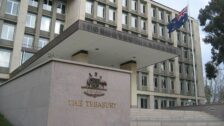Abolish safe harbour, increase wholesale to $5m should be priorities
The Financial Services Council, which represents more than 100 member companies and is the peak body for the corporate financial services sector this week delivered what they believe are the priorities for the next Parliament: whether that be the Coalition or Labor.
After delivering one of the more powerful reports in recent years, they are doubling down on a number of areas placing pressure on Government ministers to alleviate the pressure on the sector. With advice spanning life insurance, investment management and financial advice, the big changes required are focused on the latter.
Central to their advice is a view shared by a growing number of associations, which is a recommendation to ‘abolish the safe harbour steps for complying with the Best Interests Duty’. There has been growing concern that this has become a ‘tick-box’ exercise which does little more than add to the cost of and slow down the process of delivering advice. Importantly, this offers a first step to enable a principles-based advice model and represent an unwinding of legislation brought in some 10 years ago.
They once again suggest that unruly Statements of Advice (SOAs), which even when shortened can extend out to 50 pages, should be abolished and ‘replaced with a Letter of Advice with scalable obligations’. They believe this will result in ‘less paperwork for consumers and less time taken to prepare it while ensuring advice is better understood and more specific to consumer needs.’
One of the major changes proposed was the call to increase the wholesale client threshold to $5 million and then index this to ‘protect 275,000 more consumers’ and keep pace with changes in wealth. They seek to “ensure a greater proportion of financial advice consumers are considered ‘retail’ clients, and hence fall within the consumer protection framework”.
The result of these changes, according to an external consultant, was the potential to cut the cost of delivering advice from $5,333 by $2,000, release some 32 per cent of adviser time and potentially assist an extra 44 people per year.
Other key recommendations include the ‘prioritisation of stability’ pushing for no further changes to superannuation law or risk eroding confidence in the structure. They continue to put forward the Australian Superannuation and Infrastructure Investment Vehicle as an option to bridge the divide between the $3 trillion pool of assets and the capital required for nation building. With the fund to be made available through platforms, tradeable on secondary markets and covering a suite of infrastructure projects.










